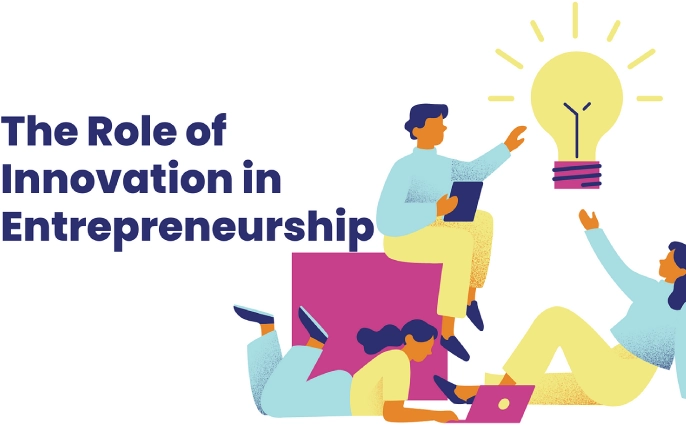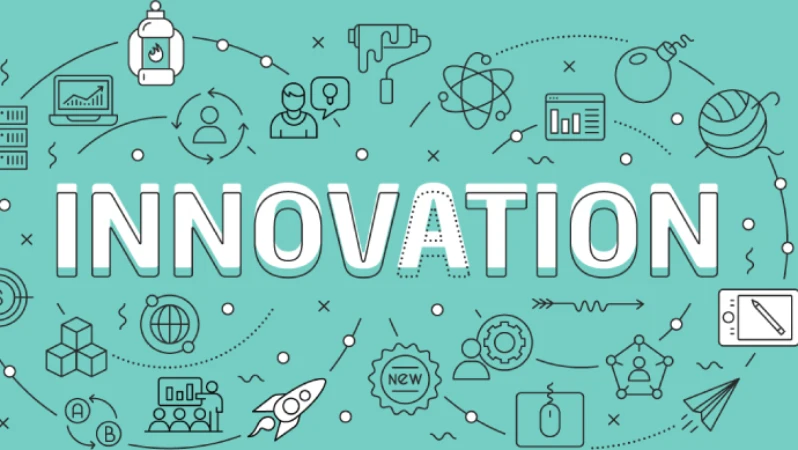The Role of Innovation in Transforming Our World
The Role of Innovation: Shaping Our Future Innovation is a key part of our lives. It helps us solve problems and create new things. In today’s world, the role of innovation is more important than ever. This article will explore how innovation impacts different areas of our lives. From technology to education, innovation drives progress and change. Let’s dive into the many ways innovation shapes our future.
What is Innovation?
Innovation means making changes to something that already exists. Additionally, it can also mean creating something new. For example, smartphones are an innovation in communication because they changed how we talk to each other. By looking at different types of innovation, we can better understand its role in society..
Types of Innovation
Innovation can be divided into different types. Here are a few common types:
Product Innovation: This involves creating new products or improving existing ones. For example, electric cars are an innovation in transportation.
Process Innovation: This means changing how something is done. For instance, factories now use robots to make products faster and cheaper.
Business Model Innovation: This type focuses on how companies create and deliver value. The rise of online shopping is an example of this type of innovation.
Understanding these types helps us see how innovation affects various sectors.
The Importance of Innovation in Technology
Technology is one of the biggest areas where innovation plays a role. New technologies can improve our lives in many ways. For example, artificial intelligence (AI) is changing industries. AI helps doctors diagnose diseases faster. It also assists businesses in understanding their customers better.
AI and Its Impact: The Role of Innovation
AI is not just a buzzword; it’s a real game-changer. It helps in automating tasks that used to take a long time. This means people can focus on more important work. For example, chatbots provide customer service 24/7, improving customer satisfaction.
Moreover, AI can analyze data quickly. This helps businesses make better decisions. As a result, companies can become more efficient and profitable.
Innovation in Education
Education is another field where innovation plays a vital role. With new teaching methods and technologies, learning becomes more accessible.
Online Learning Platforms: The Role of Innovation:
Platforms such as Coursera and Khan Academy play a vital role in the role of innovation by offering courses to anyone with an internet connection. Consequently, people worldwide can gain new skills without needing to attend a physical classroom. As a result, more individuals now have access to quality education, further highlighting the impact of innovation in transforming learning experiences.

The Role of Innovation in education.
Moreover, these platforms often use innovative tools, like videos and interactive quizzes. This helps students learn better and stay engaged.
The Role of Innovation in Healthcare
Healthcare is critical to our well-being. Innovations in this field can save lives. For instance, telemedicine allows doctors to consult patients remotely. This has been especially useful during the pandemic.
Advancements in Medical Technology
Medical technology is rapidly evolving. New machines and devices help doctors treat patients more effectively. For example, robotic surgery allows for more precise operations. This can lead to quicker recoveries and less pain for patients.
Additionally, innovations in pharmaceuticals lead to better medicines. Researchers are constantly finding new ways to treat diseases. This means patients can live healthier lives.
Environmental Innovation
As our world faces climate change, innovation is key to creating a sustainable future. Many companies are now focusing on green technologies.
Renewable Energy Sources
Renewable energy sources, like solar and wind, are changing how we produce electricity. These sources are cleaner than fossil fuels. By investing in these technologies, we can reduce our carbon footprint.
Furthermore, electric vehicles (EVs) are gaining popularity. They help decrease pollution in our cities. Innovations in battery technology make EVs more efficient and affordable.
The Role of Innovation in Driving Economic Growth
Innovation plays a vital role in driving economic growth by creating new industries, improving efficiency, and generating jobs. Moreover, when businesses adopt innovative practices, they often discover more cost-effective ways to produce goods and services. This leads to increased productivity, which boosts the overall economy. Additionally, innovation encourages entrepreneurship, as new ideas can turn into successful businesses. As a result, countries that invest in innovation typically experience stronger economic performance. Furthermore, by staying ahead in innovation, businesses can maintain a competitive edge in the global market, fostering long-term economic stability.
The Impact of Innovation on Business
Innovation also plays a significant role in how businesses operate. Companies that innovate can stay ahead of the competition. This is crucial in a fast-paced market.
Staying Competitive: The Role of Innovation
To remain competitive, businesses must adapt to changes. For example, companies use data analytics to understand customer preferences. This allows them to tailor their products and services.
Moreover, businesses are using social media for marketing. Innovative marketing strategies help reach a broader audience. As a result, companies can grow and thrive in their industries.
Challenges of Innovation
While innovation is essential, it also comes with challenges. Not all innovations succeed. Some may require significant investment without guaranteed returns.
Overcoming Barriers: The Role of Innovation
To overcome these barriers, businesses must foster a culture of creativity. Encouraging employees to share ideas can lead to breakthrough innovations. Additionally, investing in research and development is crucial for long, term success.
The Role of Innovation
Innovation plays a crucial part in shaping our future. It helps solve problems, improve our lives, and make the world a better place. Let’s dive into the role innovation plays in various fields and understand its importance.
Why Innovation Matters
Improving Everyday Life
Innovation has transformed the way we live. From the invention of the light bulb to smartphones, each breakthrough has made daily life easier. Imagine a world without electricity or modern technology—it would be much harder to get things done. Innovation continuously brings new tools and technologies that help us complete tasks faster and more efficiently.
Solving Global Problems: The Role of Innovation
Innovation doesn’t just improve individual lives, it also helps tackle some of the biggest global challenges. For example, advances in renewable energy are helping reduce climate change. New medicines are being developed to fight diseases, and fresh ideas are improving education systems worldwide. In this way, innovation becomes a powerful tool for solving issues that affect millions of people.
The Role of Innovation in Enhancing Healthcare Solutions
In healthcare, the role of innovation is transformative, leading to better patient outcomes and more efficient treatments. With innovations such as telemedicine and A, driven diagnostics, doctors can provide faster, more accurate care to their patients. Additionally, new medical technologies, such as robotic surgery, allow for less invasive procedures, which improve recovery times. This not only enhances the patient experience but also reduces the overall cost of care. Moreover, continuous innovation in pharmaceuticals and medical devices ensures that healthcare remains effective in addressing new diseases and challenges, making it a key component of a healthier future.
Innovation in Technology
The Growth of Digital Tools
One of the most visible areas where innovation has had an enormous impact is technology. Over the past few decades, the world has witnessed an incredible shift toward digital tools and solutions. Specifically, computers, the internet, and mobile phones have all changed the way we communicate, learn, and work. Furthermore, the rise of social media platforms and smart devices has made information accessible to everyone, no matter where they are..
How Technology Transforms Industries: The Role of Innovation
Almost every industry has been reshaped by innovation in technology. Specifically, in healthcare, advanced medical devices allow doctors to diagnose and treat patients more accurately. In transportation, electric cars and autonomous vehicles are reducing emissions and making travel safer. Innovation in technology is not only revolutionizing industries but also enhancing the quality of life for people worldwide..
Innovation in Education
New Learning Methods
Innovation in education is opening doors to new ways of learning. For example, online platforms, virtual classrooms, and interactive tools make education more accessible than ever. Today, students can learn from teachers all over the world without leaving their homes. This has greatly expanded opportunities for those in remote areas who once had limited access to education.
Preparing for Future Jobs
With constant changes in technology, similarly, education must also innovate to prepare students for the future. Many of today’s jobs did not exist a few decades ago, and new careers will continue to emerge. Innovation ensures that schools and universities can teach the skills students will need in tomorrow’s workforce.
Innovation and Sustainability
Green Solutions
Innovation plays a big role in protecting our planet. For instance, companies and scientists are constantly developing eco-friendly products and solutions to reduce waste and pollution. Solar panels, electric vehicles, and recycling technologies are just a few examples of how innovation can lead to a greener, cleaner world.
The Role of Innovation in Building a Sustainable Future
Looking forward, moreover, innovation will be key to achieving sustainability goals. As populations grow, there will be more demand for resources, and innovation will help us manage them responsibly. Whether through smarter energy systems or advanced farming techniques, innovation ensures we can meet the needs of the present without compromising the future.
FAQ: The Role of Innovation
What is innovation?
Innovation means creating new ideas or improving existing ones.
Why is innovation important?
Innovation helps solve problems and improves our quality of life.
What are the types of innovation?
Types include product, process, and business model innovation.
How does innovation impact technology?
Innovation in technology leads to new tools and solutions that improve efficiency.
What is telemedicine?
Telemedicine allows patients to consult doctors remotely, improving access to healthcare.
How does innovation help the environment?
Innovations like renewable energy sources reduce pollution and promote sustainability.
What challenges does innovation face?
Challenges include high costs and the risk of failure in new ideas.
Conclusion: The Role of Innovation in Shaping the Future
The role of innovation is crucial in driving progress across multiple sectors, including technology, healthcare, education, and the environment. By continuously improving processes and introducing new ideas, innovation not only allows us to solve complex challenges but also helps us adapt to a rapidly changing world. Whether it’s through advancements in AI, renewable energy, or online learning platforms, innovation ensures that society keeps evolving for the better. Furthermore, these developments not only improve our daily lives but also set the stage for future breakthroughs.
Moreover, as we move forward, the role of innovation will only become more significant. In addition, it is essential for businesses, governments, and individuals to embrace creative thinking and invest in research and development. With a strong focus on innovation, we can continue to enhance the quality of life, address global issues like climate change, and open doors to new opportunities. Therefore, it is clear that the role of innovation remains one of the most powerful forces shaping our collective future.


